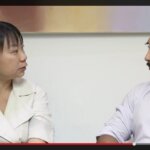At a recent conference, I heard at least a dozen people talking about outsourcing their thought leadership. I found it quite funny, because when I published 24 Carat Bold (my flagship book on thought leadership) just six years ago, hardly anyone was using the term. Now people are using it in the wrong way, and it makes me feel sad.
It turns out the folks at the conference were talking about having their staff, their marketing department or their PR agency write articles, blogs and social media posts, and put the expert’s name on the material. So, they are equating written content with thought leadership.
There is a big issue with that, as true thought leadership means really exceptional, disruptive, new ideas. The kind of ideas we rarely see. The kind of ideas that make people’s heads turn. And this kind of exceptional thought leadership can only be achieved by thought leaders themselves. Business leaders can certainly be thought leaders, but there has to be some original thinking, and it has to be done by the leader himself or herself.
You can’t outsource your thinking any more than you can outsource other highly personal activities, such as going to the doctor, or going to bed with your partner. There are some things you simply have to do yourself, and thinking is one of those things.
I can totally understand the reasons why leaders would be tempted to outsource their thinking. Firstly, they believe, as many people do nowadays, that they don’t have enough time to do their day job, much less time to think. There always seems to be too much to do, and the more senior you are, the more pressure there is to achieve more and perform to a higher level all the time. After all, leaders tend to be in the public eye, and most feel as if they are in the spotlight with all their stakeholders scrutinising their every move.
A more subtle reason stems from the fear of not having anything to say, or anything original or interesting to say. Have you ever worried about that? If so, you are not alone. Having worked with over one thousand entrepreneurs and executives over the past fourteen years, I can tell you this is a very common fear, and it is just as prevalent, if not more so, amongst senior executives.
It is actually riskier to outsource or delegate the sharing of key insights, especially if you allow your name to be applied to the piece. Imagine a scenario where two senior leaders in the company is asked to speak at a conference based on a series of articles or blogs that he or she wrote. Well, one of those leaders put the thinking in and wrote their own stuff; the other has their marketing team out those articles out.
Not only is there the main presentation to deliver, but perhaps also a panel discussion and all those impromptu conversations during the event. The leader who is absolutely clear on their ideas and insights will be completely authentic, congruent and persuasive. The one who tried to outsource their thinking will feel much less comfortable and less able to engage in robust discussion about the ideas.
So, what is the answer? Should a leader spend all his or her time thinking, when there is a business to run? Not at all. There is a great shortcut that could help, while still allowing the exciting thought leadership to emerge. The answer is to use an expert coach to help explore and distil your best ideas, and craft some powerful content and messages that will turn heads. With skilful questioning and coaching, a leader can quickly arrive at insights that are exciting and unique.
Once you have done the thinking to the right level and you can explain the concepts clearly, then and only then do you involve others, such as the marketing team or the agency folks. In other words, the executive still owns the strategy and the ideas. It’s just the execution that gets delegated or outsourced. This is how we have produced hundreds of articles at my companies – but not this article. This is some of my cutting-edge content and I haven’t yet brought in the rest of the team. I hope you’re glad I didn’t try to outsource my thinking. I also hope you are willing to give this method a go, and to aspire to be a true thought leader.
About the author
Mindy Gibbins-Klein MBA FPSA FRSA is a multi-award-winning international speaker, author and thought leadership strategist. Her flagship book 24 Carat BOLD outlines the four attributes found in true thought leaders. Her latest book The Thoughtful Leader takes thought leadership to a new level.
Founder and CEO of REAL Thought Leaders, The Book Midwife® and Panoma Press, Mindy has authored and co-authored eight books. She is also a regular contributor to the business press on thought leadership and raising your profile





























